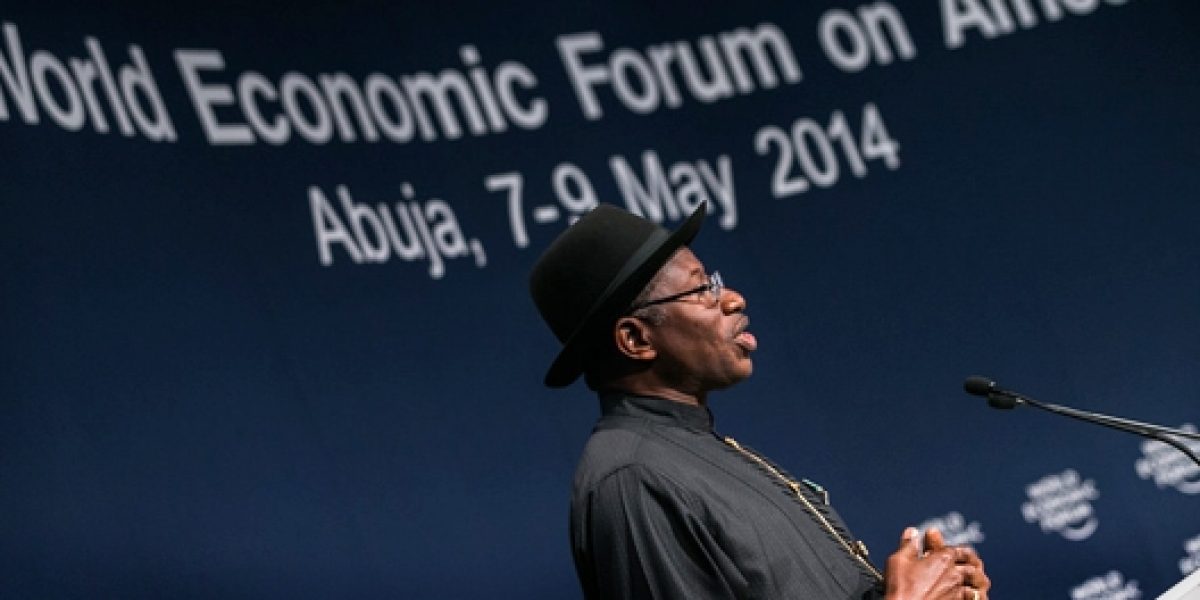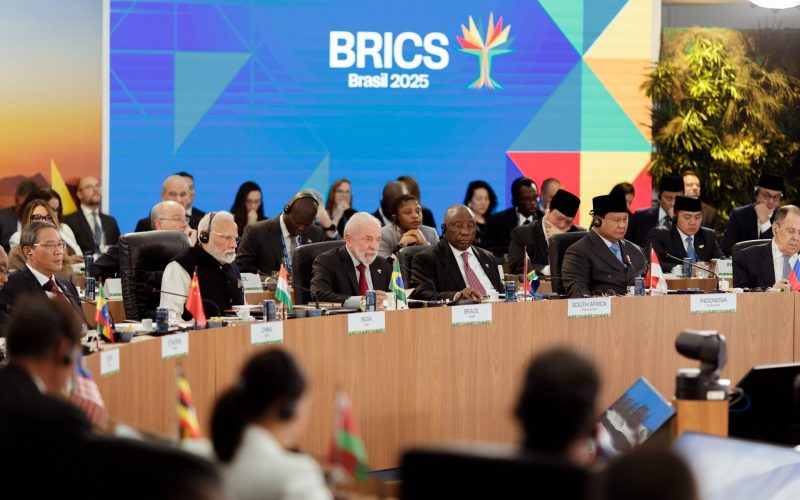The accolade was the crowning glory of a year in which Nigeria’s rebased gross domestic product catapulted it past SA to number one in Africa by far, notwithstanding Boko Haram’s depredations.
Opportunities abound in Nigeria’s rapidly expanding market. The government is set on building core infrastructure, particularly energy, railroads, and roads. Modernisation programmes are being implemented in fields as diverse as agriculture and customs. The population, while still poor, is expanding rapidly, along with urbanisation. Consequently, consumer-facing industries such as retail are attracting substantial attention and investment.
Accordingly, many senior business people I spoke to regard the Nigerian growth story as one they have to be part of. Nigeria is the African market of the future.
But consider the environment in which business has to operate.
I moderated a session on trade facilitation, or customs procedures. Apparently it takes 141 signatures to move a container through the Lagos Port complex, a figure I informally verified through subsequent personal interactions with logistics executives. Imagine the corruption opportunities this implies, and the associated border delays.
Internal borders apparently abound. The official ones are relatively easy to navigate; the unofficial ones are extortionate enterprises. The government is reportedly introducing legislation to remove the official barriers, but this could face a complex political economy passage through the Nigerian parliament. Evidently, one of the key motivations for constructing railroads is to avoid these internal barriers. But obtaining permission to construct railroads, or other infrastructure, is a daunting proposition. In one private conversation, I was told that during a certain healthcare reform, one government department resorted to bribing another simply to secure the necessary permissions.
Perhaps this is apocryphal, but my confidant did not think so.
A group of South African WEFers attempting the arduous journey home from Abuja via Lagos tasted the sharp end of Nigerian official venality at Lagos International Airport, where having a business class seat (I did not) meant nothing. That was after negotiating the fraught transition from the domestic to the international terminal, as they are separated by 5km of periodically gridlocked road. If it had not been for WEF and airport staff, I seriously doubt most of us would have made it home, at least with our wallets intact.
Further, both Nigerian President Goodluck Jonathan and his trade minister clearly like import-substitution policies. In the Nigerian context, these will favour the few connected billionaires who seem to be involved in all economic policy initiatives.
The Nigerian state is quite unlike a Singapore, or Rwanda, in its ability to manage special interests. And for those who want to access the Nigerian story through exports, beware the arbitrary trade barrier such as the recent hike of the automotive tariff, which seems to have caught many Nigerians and expatriate businesses by surprise.
So, despite the reformist zeal clearly on display from Jonathan and his impressive cabinet ministers, it will take a long time to clear institutionally entrenched venality, while trade policy in my view is moving in the wrong direction.
Furthermore, Jonathan recently lost his parliamentary majority, and assuming he stands in the February 2015 elections — a likely prospect — he may not regain it. His potential candidacy is generating considerable political tension, with northerners accusing him of abrogating an unofficial pact within his party that the presidency will rotate between north and south in order to keep the country together.
Clearly, Nigeria has a long way to go, and may always be a country for the future. Yet South African business has to be part of the story, as it already is. That is why the relatively poor state of bilateral relations between the two continental powers is so disappointing. Recently re-elected President Jacob Zuma needs to prioritise this relationship.
He could start by proposing a free-trade agreement anchored on emerging transport-sector co-operation, the centrepiece of which is Nissan’s forthcoming exports of motor vehicle kits from SA to Nigeria. Over time, this could be expanded to cover more goods, particularly those on Abuja’s list of prohibited imports, services and investment relations, subject to sensitivities on both sides.
Such a process would provide a major boost to the continental free trade initiatives discussed in Abuja. Beyond ritualistic griping about the many things that are wrong — and well known — with regional economic integration in Africa, no new ideas were floated.
Nonetheless, some ministers and senior representatives of the African Union argued that regional economic integration should be prioritised over trade relations with northern partners. I think that both are important. Unfortunately, the fraught negotiations with the European Union to establish economic partnership agreements (EPAs) continue to be politically problematic.
The Nigerians are actively courting their counterparts in the Economic Community of West African States not to sign up, a position enjoying some qualified South African sympathy and broader African support, all of which was on display in Abuja.
It is not clear what the EPA end-game is, and no new insights were offered in the meetings I attended.
Trade relations with the US are also poised for renovation in advance of the August US-Africa summit. The African Growth and Opportunities Act (AGOA) is up for renewal in September next year, and some US companies are agitating for reciprocal access to key African markets, particularly SA, which may be graduated from AGOA access in the increasingly likely event that it signs up to an EPA.
That could precipitate major change in SA’s trade relations with the US, most likely centring on unilateral liberalisation of certain tariff lines by SA. The US is also keen to make AGOA more accessible to African exporters, but in the context of a long-term phase-out of its tariff preferences. These issues and more were discussed with US Trade Representative Michael Froman in Abuja.
Given these difficulties, Chinese Premier Li Keqiang’s speech at the opening plenary loomed large. He promised money — 50% of Chinese official development assistance will be directed to Africa — and projects in aviation, aerospace, energy and railroads, including high-speed rail. He also promised that the Chinese government would not interfere in African internal affairs, and that rogue Chinese businesses will be reined in.
His speech was well received, and its practical, businesslike emphasis contrasted positively with discussions on regional integration, EPAs and AGOA. As one sun sets in the west, another rises in the east.
Peter Draper attended the World Economic Forum’s Summit on Africa in Abuja earlier this month.








